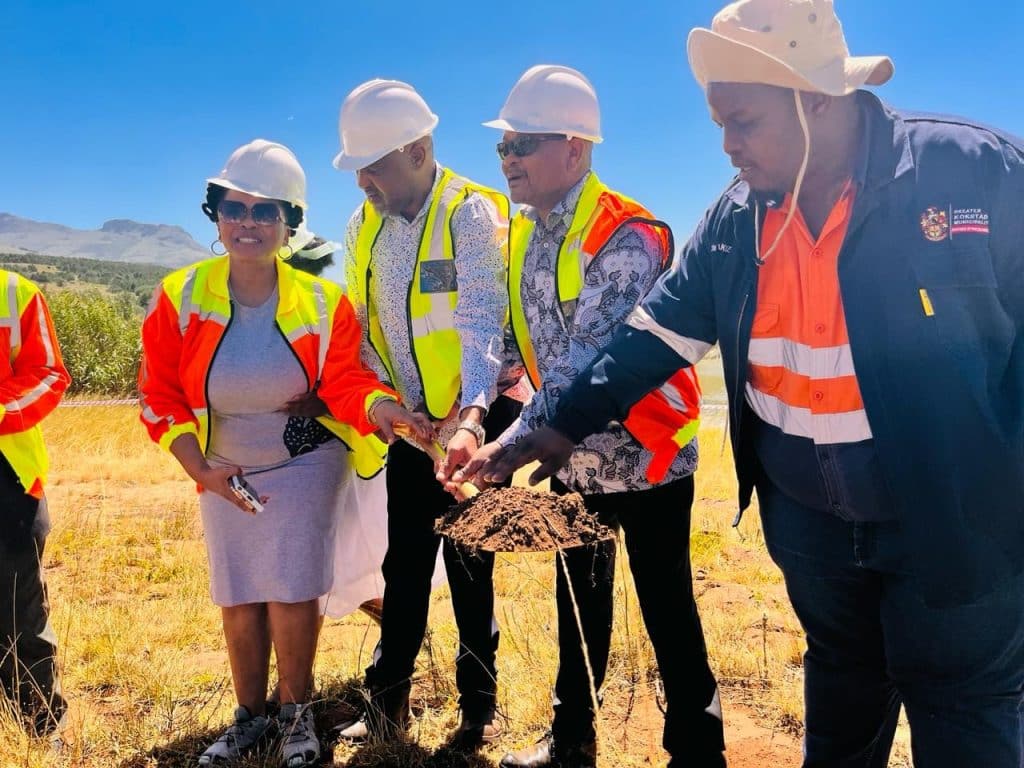In order to guarantee access to drinking water for the people of Kokstad by 2040, the government of the Republic of South Africa is rehabilitating the Kempsdale dam. The work was launched on 8 March 2024 by the South African Minister for Water and Sanitation, Senzo Mchunu, during a working visit to this municipality in the Harry Gwala district of KwaZulu Natal. The New Zealand company Plant Hire JV RGZ Construction has been appointed to implement this water project.
To secure the supply to Kokstad, Plant Hire JV RGZ Construction will increase the dam’s raw water capacity through various works, including raising the height of the wall of the existing Kempsdale structure from 4 to 7.8 metres. This will increase the reservoir’s storage capacity from 215,055 m3 to 1,214,519 m3. A new pumping station will also be built downstream of the dam. The raw water will be treated at the Kokstad drinking water treatment plant, which has a capacity of 18,000 m3 per day.
Bringing the dam back into service in three years
Demand for drinking water in Kokstad currently stands at 10,350 m3 per day, and is expected to rise to 14,450 m3 per day by 2040. “The project will benefit some 69,146 people, or 11,524 households in the towns of Kokstad, Shayamoya and Bhongweni (wards: 1, 3, 4, 5, 7, 8, 9 and 10), thereby alleviating drinking water shortages,” says the South African Department of Water and Sanitation.
Read Also – SOUTH AFRICA: Tzaneen Dam Rehabilitation Project to Start in March 2023
Plant Hire JV RGZ Construction has three years to complete the refurbishment of the Kempsdale dam, which is estimated to cost 2 billion South African rand (around $108 million). According to Senzo Mchunu, the funds will be provided by MIG. SSR Security CC T/A Mahlubi in South Africa.
The Rainbow Nation’s Minister of Water and Sanitation also reiterated the South African government’s commitment to speeding up service delivery projects, particularly those aimed at ensuring an adequate and constant supply of water in South Africa, as water is an essential service and a fundamental human right.
Inès Magoum
